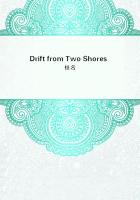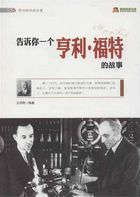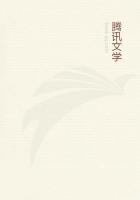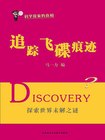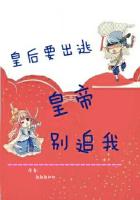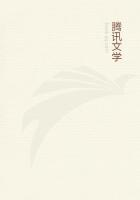Directions were given that it might be set forward as quickly as possible, and on an imposing scale. For it was feared at court that King John of Portugal, the successful rival of Spain, thus far, in maritime adventure, might anticipate further discovery.
The sovereigns at once sent an embassy to the pope, not simply to announce the discovery, but to obtain from him a decree confirming similar discoveries in the same direction. There was at least one precedent for such action. A former pope had granted to Portugal all the lands it might discover in Africa, south of Cape Bojador, and the Spanish crown had assented by treaty to this arrangement. Ferdinand and Isabella could now refer to this precedent, in asking for a grant to them of their discoveries on the western side of the Atlantic. The pope now reigning was Alexander II. He had not long filled the papal chair. He was an ambitious and prudent sovereign--a native of Spain--and, although he would gladly have pleased the king of Portugal, he was quite unwilling to displease the Spanish sovereigns. The Roman court received with respect the request made to them. The pope expressed his joy at the hopes thrown out for the conversion of the heathen, which the Spanish sovereigns had expressed, as Columbus had always done. And so prompt were the Spanish requests, and so ready the pope's answer, that as early as May 3, 1493, a papal bull was issued to meet the wishes of Spain.
This bull determined for Spain and for Portugal, that all discoveries made west of a meridian line one hundred leagues west of the Azores should belong to Spain. All discoveries east of that line should belong to Portugal. No reference was made to other maritime powers, and it does not seem to have been supposed that other states had any rights in such matters. The line thus arranged for the two nations was changed by their own agreement, in 1494, for a north and south line three hundred and fifty leagues west of the Cape de Verde Islands. The difference between the two lines was not supposed to be important.
The decision thus made was long respected. Under a mistaken impression as to the longitude of the Philippine Islands in the East Indies, Spain has held those islands, under this line of division, ever since their discovery by Magellan. She considered herself entitled to all the islands and lands between the meridian thus drawn in the Atlantic and the similar meridian one hundred and eighty degrees away, on exactly the other side of the world.
Under the same line of division, Portugal held, for three centuries and more, Brazil, which projects so far eastward into the Atlantic as to cross this line of division.
Fearful, all the time, that neither the pope's decree, nor any diplomacy would prevent the king of Portugal from attempting to seize lands at the west, the Spanish court pressed with eagerness arrangements for a second expedition. It was to be on a large and generous scale and to take out a thousand men. For this was the first plan, though the number afterwards was increased to fifteen hundred. To give efficiency to all the measures of colonization, what we should call a new department of administration was formed, and at the head of it was placed Juan Rodriguez de Fonseca.
Fonseca held this high and responsible position for thirty years.
He early conceived a great dislike of Columbus, who, in some transactions before this expedition sailed, appealed to the sovereigns to set aside a decision of Fonseca's, and succeeded.
For all the period while he managed the Indian affairs of Spain, Fonseca kept his own interests in sight more closely than those of Spain or of the colonists; and not Columbus only, but every other official of Spain in the West Indies, had reason to regret the appointment.
The king of Portugal and the sovereigns of Spain began complicated and suspicious negotiations with each other regarding the new discoveries. Eventually, as has been said, they acceded to the pope's proposal and decree. But, at first, distrusting each other, and concealing their real purposes, in the worst style of the diplomacy of that time, they attempted treaties for the adjustment between themselves of the right to lands not yet discovered by either. Of these negotiations, the important result was that which has been named,--the change of the meridian of division from that proposed by the pope. It is curious now to see that the king of Portugal proposed a line of division, which would run east and west, so that Spain should have the new territories north of the latitude of the Grand Canary, and Portugal all to the south.
In the midst of negotiation, the king and queen and Columbus knew that whoever was first on the ground of discovery would have the great advantage. There was a rumor in Spain that Portugal had already sent out vessels to the west. Everything was pressed with alacrity at Cadiz. The expedition was to be under Columbus's absolute command. Seamen of reputation were engaged to serve under him. Seventeen vessels were to take out a colony. Horses as well as cattle and other domestic animals were provided. Seeds and plants of different kinds were sent out, and to this first colonization by Spain, America owes the sugar-cane, and perhaps some other of her tropical productions.
Columbus remained in Barcelona until the twenty-third of May. But before that time, the important orders for the expedition had been given. He then went to Cadiz himself, and gave his personal attention to the preparations. Applications were eagerly pressed, from all quarters, for permission to go. Young men of high family were eager to try the great adventure. It was necessary to enlarge the number from that at first proposed. The increase of expense, ordered as the plans enlarged, did not please Fonseca.
To quarrels between him and Columbus at this time have been referred the persecutions which Columbus afterwards suffered. In this case the king sustained Columbus in all his requisitions, and Fonseca was obliged to answer them.
So rapidly were all these preparations made, that, in a little more than a year from the sailing of the first expedition, the second, on a scale so much larger, was ready for sea.

